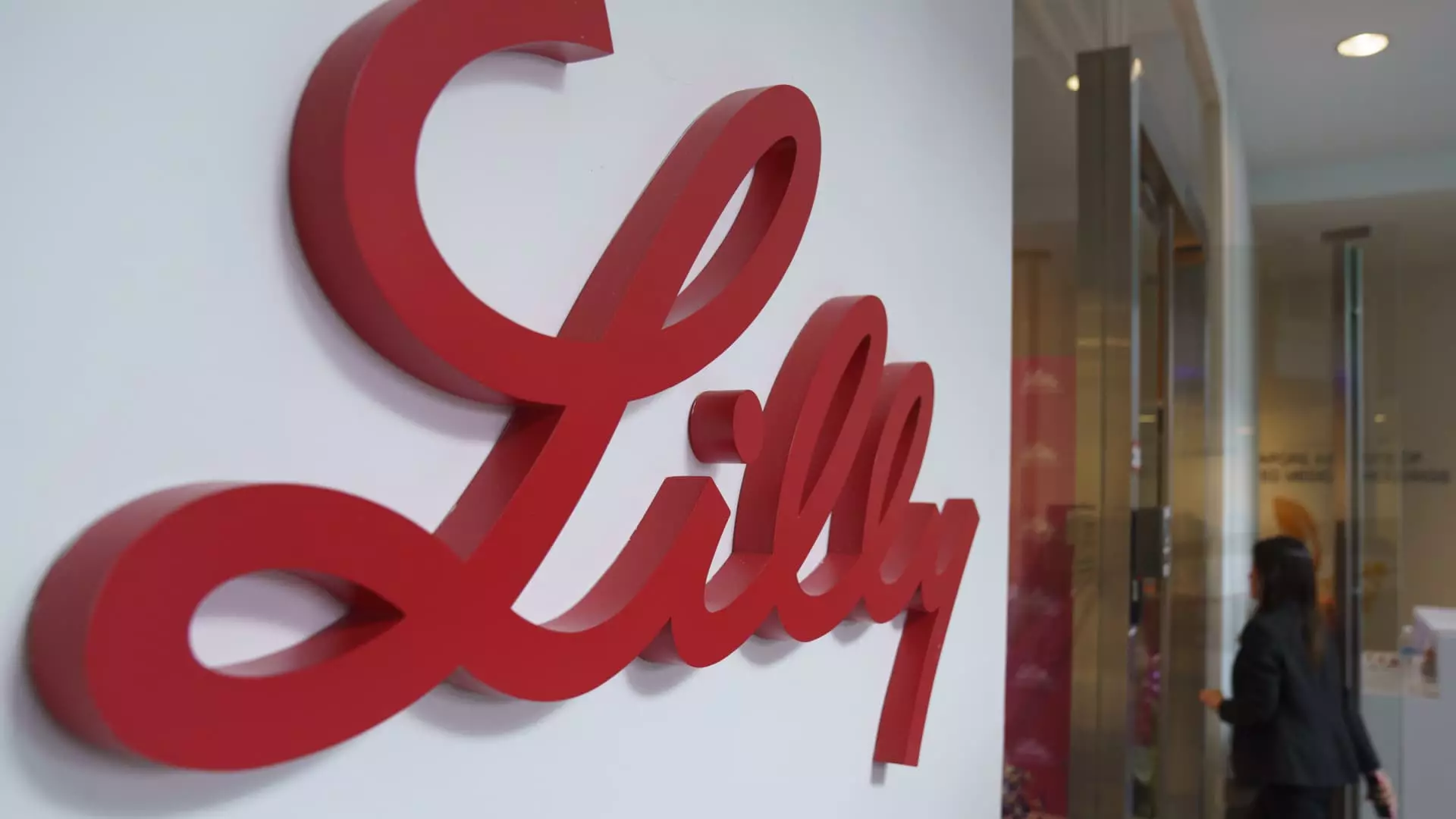Eli Lilly, the pharmaceutical juggernaut, continues to capture public attention with its bold financial maneuvers and innovative drug development—especially in the weight loss and diabetes sectors. Their recent quarterly earnings report for Q1 set the stage for a captivating narrative: revenues soared to $12.73 billion, a jaw-dropping 45% increase year-over-year. Particularly striking was the performance of their diabetes treatment, Mounjaro, which generated $3.84 billion—an awe-inspiring 113% uptick from the previous year. Zepbound, their weight-loss alternative, also surged past expectations, raking in $2.31 billion.
Such financial highs tantalize both investors and consumers alike, suggesting a golden age for Eli Lilly. However, lurking beneath this facade of success lies a troubling context. The company has revised its full-year profit guidance downward, now projecting adjusted earnings between $20.78 and $22.28 per share, a slip from a prior estimate of $22.50 to $24. This isn’t merely a result of evolving market dynamics; a staggering $1.57 billion charge tied to a recent acquisition underscores the instability shaking this seemingly golden enterprise. Investors may revel in the record numbers, but can they ignore the ominous shadows of strategic missteps?
Tariffs: A Double-Edged Sword
In a complex political landscape, Eli Lilly’s CEO, Dave Ricks, provided food for thought during his interview with CNBC. He cautiously navigated the implications of President Trump’s existing tariffs on pharmaceuticals while also hinting at economic reinvestments in U.S. manufacturing. While Ricks posits that the current climate is ushering critical supply chains back home, the reality checks of tariffs remain ambiguous. If tariffs serve as a catalyst for reinvestment, do they inadvertently also create an antithesis to free market principles?
Ricks pushes for a permanent reduction in domestic corporate tax rates, arguing that a lower tax climate could bring drugmakers back from “low-tax islands.” The juxtaposition here is vital—Eli Lilly wants to reduce expenditures to cater to a consumer base still reeling from inflation and escalating living costs. But should we really seek more corporate incentives in a country that is grappling with wealth disparity?
Popularity vs. Accessibility: A Disturbing Dilemma
In the race for advanced pharmaceutical solutions, one must question the ethical implications of soaring demand at a price point that often excludes large sections of society. Eli Lilly’s blockbuster drugs, while beneficial, are caught in a cruel paradox. As demand for Mounjaro and Zepbound skyrockets, these life-changing medications risk becoming luxuries, leaving many without access. Policymakers ought to prepare for pushback against increasing prices as these medications become the new gold standard for diabetes care and weight loss.
While Eli Lilly is rightly praised for meeting an undeniable need, they face an uphill battle in ensuring that these groundbreaking medications do not become markers of inequality. For a liberal-centered constituency, the apparent prioritization of profit over people should raise ethical concerns. How can a society build a health care framework that ensures both innovation and equitable access?
Eli Lilly represents a potent mixture of ambition, innovation, and controversy, a blend that defines the modern pharmaceutical landscape. As their financial successes draw widespread admiration, they are also ensnared in a web of ethical quandaries and socio-economic implications. The need for corporate responsibility in balancing profit and accessibility is imperative as we navigate the complexities of health care and pharmaceuticals.
Growth trajectories will likely continue to be bumpy as they venture through the intricacies of tariffs, evolving regulations, and shifting market conditions. In an era where accessible health care must be a priority, Eli Lilly’s journey poses a philosophical question: Can business interests harmonize with moral imperatives in the world of medicine? While Eli Lilly may have the market acumen and financial might, the pressing need for equitable health solutions requires them to tread carefully.

Leave a Reply